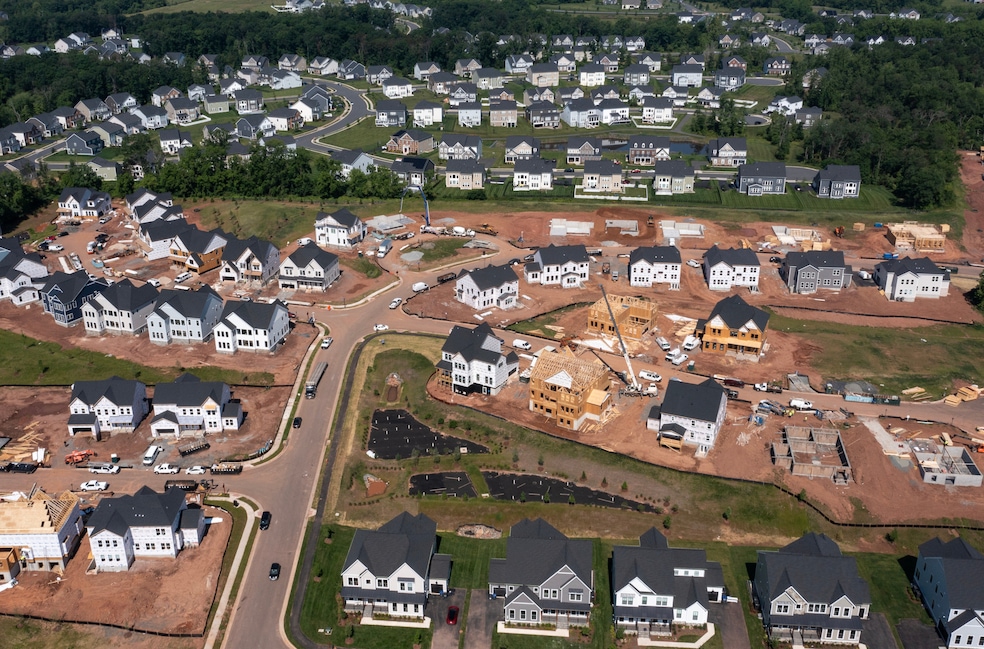Construction spending down in March, but up from a year ago
As trepidation about an economic downturn rippled across the country in March, the construction sector was not spared. Spending fell 0.5% from February’s figures to a seasonally adjusted annual rate of just under $2.2 billion, the U.S. Census reported. However, compared to March 2024, spending was up 2.8%.
Residential construction fell 0.4% in March to $938 billion, while nonresidential private construction dropped 0.8% to $750 billion. In terms of the public sector, educational construction spending was down 0.6% and highway construction decreased 0.5%.
“High mortgage rates, trepidation among builders about the economic outlook, and the need to clear new-home inventory are all obstacles for single-family homebuilding. Tariffs will drag on remodeling,” Bernard Yaros, lead U.S. economist at Oxford Economics, said in a statement.
While data centers and manufacturing-related developments have been a bright spot in recent construction data, that will decline sharply in the quarter that began in April, Yaros said. He added that multifamily construction will continue to slow down due to market conditions.
High borrowing costs and tight lending standards are hurting construction’s prospects in most areas of the economy, Anirban Basu, chief economist for Associated Builders and Contractors, said in a statement.
“While a majority of contractors surveyed in March were still optimistic about their future sales … sentiment is likely to falter as the effects of tariffs begin to raise input prices and stall or cancel projects,” he said.
Most Americans are dissatisfied with housing costs, poll finds
Just 36% of U.S. residents asked in a 2024 survey said they were satisfied with the availability of “good, affordable housing,” according to the polling company Gallup. That’s down from 61% in 2020.
The same trend is true in many of the 37 other mostly high-income, market-based countries that make up the Organization for Economic Cooperation and Development, Gallup said. By contrast, people in less wealthy countries tend to be more satisfied with housing costs because of differing expectations.
“There is a clear link between changes in house prices and changes in satisfaction with the availability of affordable housing,” Gallup said.


